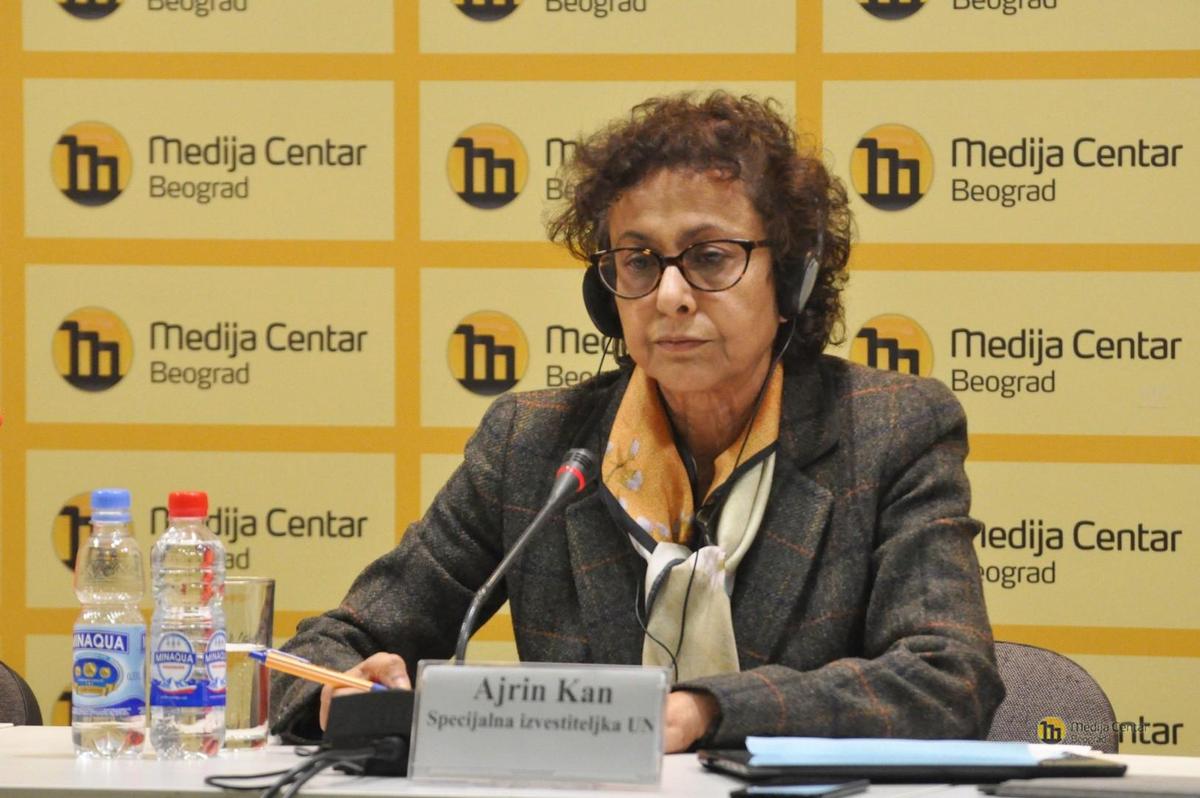Freedom of expression is not a license to harass, intimidate or threaten critical voices

UN Special Rapporteur on Freedom of Opinion and Expression Irene Khan visited Serbia at the beginning of March at a time when dangerous pressures were being exerted on independent media. Ms. Khan calls for political will to translate laws into concrete action to protect freedom of expression.
Irene Khan
Irene Khan is the UN Special Rapporteur on the promotion and protection of the right to freedom of opinion and expression since 1 August 2020. She is the first woman to hold this position since the establishment of the mandate in 1993.
An internationally recognized advocate for human rights, gender equality and social justice, she teaches at the Graduate Institute of International and Development Studies in Geneva and is co-author of The Unheard Truth: Poverty and Human Rights, which has been published in seven languages.
Serbia must ensure that legal reforms are accompanied by effective implementation of laws and political will to combat dangerous rhetoric against minorities, journalists, and activists, said Irene Khan, UN Special Rapporteur on freedom of opinion and expression.
“I am encouraged by the government’s plans to reform media laws in line with international standards but also alarmed by the toxic public discourse, from politicians or public officials and amplified by tabloids, scapegoating the media, human rights defenders, ethnic minorities, LGBTI and those critical of the government,” Khan said at the end of her official visit.
“When journalists are labelled as foreign agents, traitors or enemies of the State, it undermines public trust in the media, increases the likelihood of attacks against journalists and chills media freedom and democratic debate.”
I call on the authorities to investigate and prosecute the longstanding cases of the journalists killed in Serbia
“Freedom of expression is not a license to harass, intimidate or threaten critical voices,” the UN expert said. “I urge the government to ensure that all institutions and organs of the State implement the constitutional and legal framework upholding freedom of expression while combating hate speech and disinformation.”
“Given the role that tabloids play in spreading hate speech, I am concerned that the electronic media regulatory body (REM) is failing to take appropriate action against the violators, failing to promote pluralism in media content, and allowing smear campaigns and harassment to continue.”
“Serbia must ensure that REM is independent, effective, and accountable,” the expert said.
In order to ensure the safety of journalists, the expert urged the authorities to take measures to speed up investigations and legal proceedings related to threats and attacks.
“I call on the authorities to investigate and prosecute the longstanding cases of the journalists killed in Serbia. Killing journalists is the most egregious form of censorship. Impunity must not prevail.”
Finally, she stressed that the adoption of laws alone was not sufficient to protect freedom of expression. “What is needed is strong, unequivocal political leadership from the commitment to international standards. The legal commitments of the government must be translated into action.”
During her visit, Khan also travelled to Kosovo.*
Welcoming the pluralistic media landscape in Kosovo, she encouraged the authorities to continue to strengthen media freedom. “I urge the authorities to fully implement the law on languages and call on the international community to ensure adequate support to independent Serbian language media,” she said.
The UN expert called on the authorities in Kosovo to complete the investigation of past killings and enforced disappearances of journalists and ensure justice.
*NOTE: All references to Kosovo should be understood to be in the context of United Nations Security Council Resolution 1244 (1999)